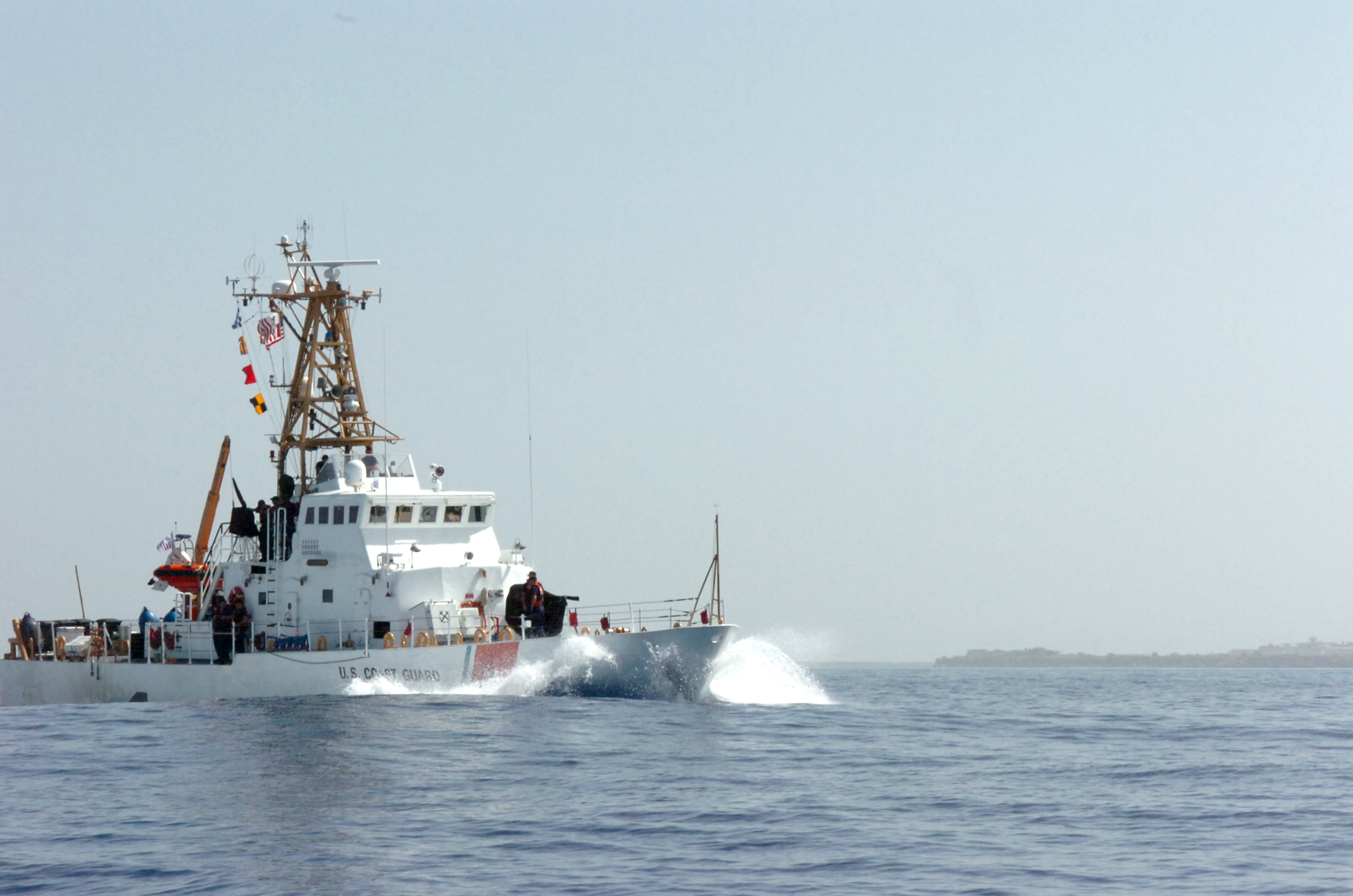Civilization
America’s Overlooked Armed Force
The United States Coast Guard is at least as important as the Navy but has poor to lacking oversight and support.

For over 234 years, the United States Coast Guard has been always ready, serving as a federal law enforcement agency, regulatory body, first responder, and one of the six armed forces. The Coast Guard has participated in every war and conflict, fighting alongside their Navy, Marine, Army and Air Force comrades, from the Quasi War to the D-Day landings at Normandy to fighting the war against terrorism in the Middle East.
Why the Coast Guard Deserves Better Oversight and Support
In an average year, the Coast Guard responds to 16,000 search and rescue cases, issues 50,000 merchant mariner credentials, inspects 18,000 commercial vessels and conducts 5,000 maritime facility inspections. It is responsible for securing a $5.4 trillion U.S. maritime transportation system that directly impacts our critical supply chains. Its personnel and ships deploy globally in support of Defense, State and Homeland Security missions, from the Arctic to Antarctica, and across regions including the Middle East, the Indo-Pacific, Europe, South America, and Africa. However, its ability to accomplish missions is being undercut by mismanagement and underfunding.
Fragmented Congressional oversight, and lack of a Service Secretary within the Department of Homeland Security (DHS) have hindered the Coast Guard’s ability to modernize and respond effectively to today’s threats.
The bipartisan Commission on the National Defense Strategy recommended a review of “the military’s reliance on U.S. private critical infrastructure for warfighting and the resilience of critical infrastructure.” From peace time trade to mobilizing for conflict, critical infrastructure, including shipping ports, are vulnerable to disruption or destruction by adversaries such as China and Russia. The Coast Guard is at the forefront of protecting the nation’s vessels, ports, facilities, and waterways.
Like its fellow armed services, multi-year recruitment shortfalls have left a 10 percent workforce shortage, or more than 4,000 unfilled positions out of its target size of 44,500.
The Coast Guard needs more personnel – and fast
“The Coast Guard cannot maintain the same level of operations with our current shortfall – we cannot do the same with less,” Coast Guard Commandant Linda Fagan told lawmakers in March 2024 on Capitol Hill during the annual State of the Coast Guard address. “The service cannot maintain the same level of operations with this gap.”
In response, the Coast Guard has limited or paused operations at shore stations responsible for everyday patrols of its waterways and reduced the number of operating ships through early retirement of its 210-foot cutters — well ahead of new replacements coming online.
Major ship acquisitions such as the Polar Security Cutter, and Offshore Patrol Cutter have suffered from cost overruns, contract challenges, and a struggling defense industrial base. Coast Guard aircraft failed to meet its own target aircraft availability percentage for response to urgent search and rescue due to maintenance issues associated with airframes nearing the end of life, including the grounding of a number of its 45 MH-60 Jayhawk helicopters.
The Coast Guard’s shore infrastructure construction and maintenance program, vital to supporting its people and operations, has a backlog of more than $2.6 billion. Even with this reality, Congress and the Department of Homeland Security enable pervasive issues to persist. Significant changes by Congress and Homeland Security are imperative to safeguarding the long-term success of the Coast Guard and security of U.S. critical ports and waterways.
Too many committees
Congressional jurisdiction of the Coast Guard is fragmented, with at least 12 House and Senate committees claiming some level of oversight. When Congress created the Department of Homeland Security in 2002, it failed to adjust its internal oversight organization or rules, leading to inefficiencies in jurisdiction and management.
Despite the Coast Guard falling under DHS, the House and Senate committees on homeland security lack primary jurisdiction over the Coast Guard. It is the only armed force and DHS component under the jurisdiction of the Senate Commerce, Science, and Transportation, and the House Transportation and Infrastructure Committees.
As an armed force, the Coast Guard sees intermittent support from the Armed Services Committees and is often left off critical legislation. During the 2019 government shutdown, Coast Guard members went 34 days without pay, as the Homeland Security budget was not passed, while other military branches continued receiving funds through the appropriated Defense budget.
Congressional leaders and committees in both chambers should work together to reform jurisdictional rules over the Coast Guard to streamline oversight, align strategic priorities, and reduce bureaucratic burden.
Now under Homeland Security
Today, the Homeland Security Secretary serves as the direct civilian overseer of the Coast Guard and is also responsible for eight other agencies, including the Secret Service and the Federal Emergency Management Agency. These agencies engage in complex, real-time operations, often responding to crises or high-stakes situations. While the Homeland Security Secretary oversees all these entities, the effectiveness of managing each one is constrained by their broad responsibilities. Given the Coast Guard’s unique missions, it requires dedicated attention that is diluted due to the Secretary’s extensive oversight of multiple heavily taxed agencies.
This has perpetuated a culture where the Coast Guard engages on its own with Congress on political issues better suited for a Service Secretary. Instead, Coast Guard senior leaders are forced into precarious political discourse that often yields outcomes contrary to strategic plans. For example, the Coast Guard has tried to close redundant shore stations, but congressional intervention has blocked these efforts despite independent studies supporting the closures.
Congress should establish a Service Secretary for the Coast Guard to provide persistent oversight and advocacy for resources, and alignment with national interests and strategic policies.
Will Congress and DHS support the Coast Guard or not?
Although the service bears some responsibility for missteps, faults in Congressional and Departmental oversight have exacerbated nearly every issue the Service faces. Congress and the Department of Homeland Security have both stated their support for the service, but the question remains whether they will make meaningful reforms or continue down the path of allowing increasing threats to undermine U.S. national security.
This article was originally published by RealClearDefense and made available via RealClearWire.
Commander Justin Matejka, national security affairs fellow for the 2024–25 academic year at the Hoover Institution, Stanford University. The views expressed in this piece are those of the author and do not necessarily reflect the official policy or position of the U.S. Coast Guard, Department of Homeland Security, or the U.S. Government.
-

 Accountability3 days ago
Accountability3 days agoWaste of the Day: Principal Bought Lobster with School Funds
-

 Constitution2 days ago
Constitution2 days agoTrump, Canada, and the Constitutional Problem Beneath the Bridge
-

 Executive1 day ago
Executive1 day agoHow Relaxed COVID-Era Rules Fueled Minnesota’s Biggest Scam
-

 Civilization1 day ago
Civilization1 day agoThe End of Purple States and Competitive Districts
-

 Civilization3 hours ago
Civilization3 hours agoWhy Europe Shouldn’t Be Upset at Trump’s Venezuelan Actions
-

 Civilization5 days ago
Civilization5 days agoThe devil is in the details
-

 Executive4 days ago
Executive4 days agoTwo New Books Bash Covid Failures
-

 Civilization4 days ago
Civilization4 days agoThe Conundrum of President Donald J. Trump













